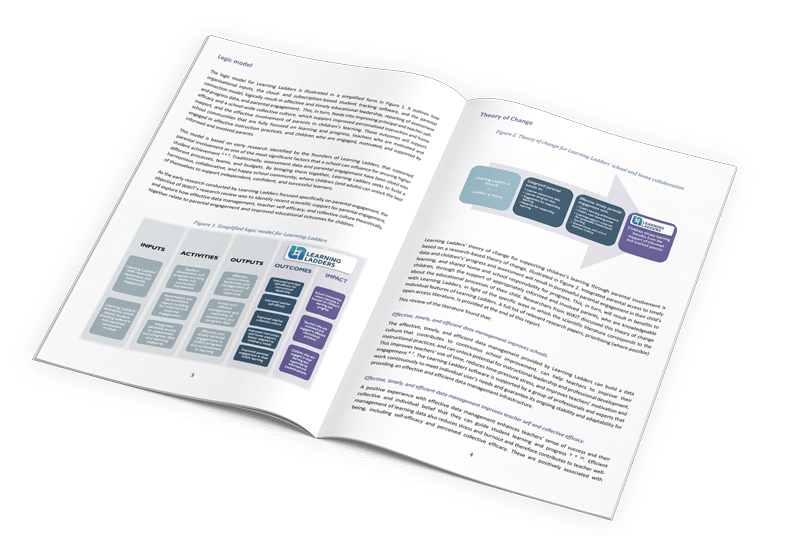EdTech Evidence -
Why it Matters
EdTech Evidence - Why it Matters
We believe it’s important that edtech vendors are transparent about the evidence they have for their product, and the basis on which they make efficacy claims.
So we’re sharing the journey we’re on to improve our own edtech evidence.
Here’s what we’ve found so far:
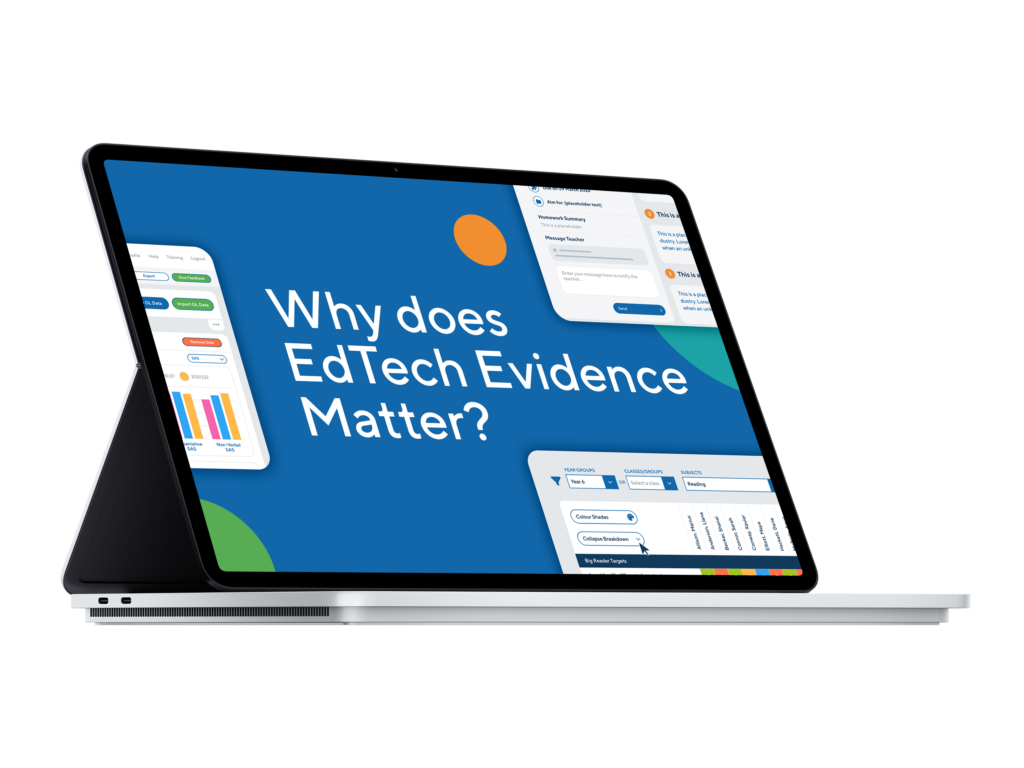
The impact of our product
-
“The effective, timely and efficient data management provided by Learning Ladders contributes to continuous school improvement [...] improves teachers’ use of time, reduces time-pressure stress, and improves teacher motivation and engagement”.
Review by Dr J Campbell & Professor N Kucirkova (2023)
- Schools switching to Learning Ladders increased average KS2 SATS results by 11% more than the national average.
- Over 90% of schools renew their licence each year.
- 2 x BETT Award Winner ‘Best Whole-School Product for Teaching, Learning and Assessment’ / Teachers Choice Award / consistently top-ranked on comparison platforms.
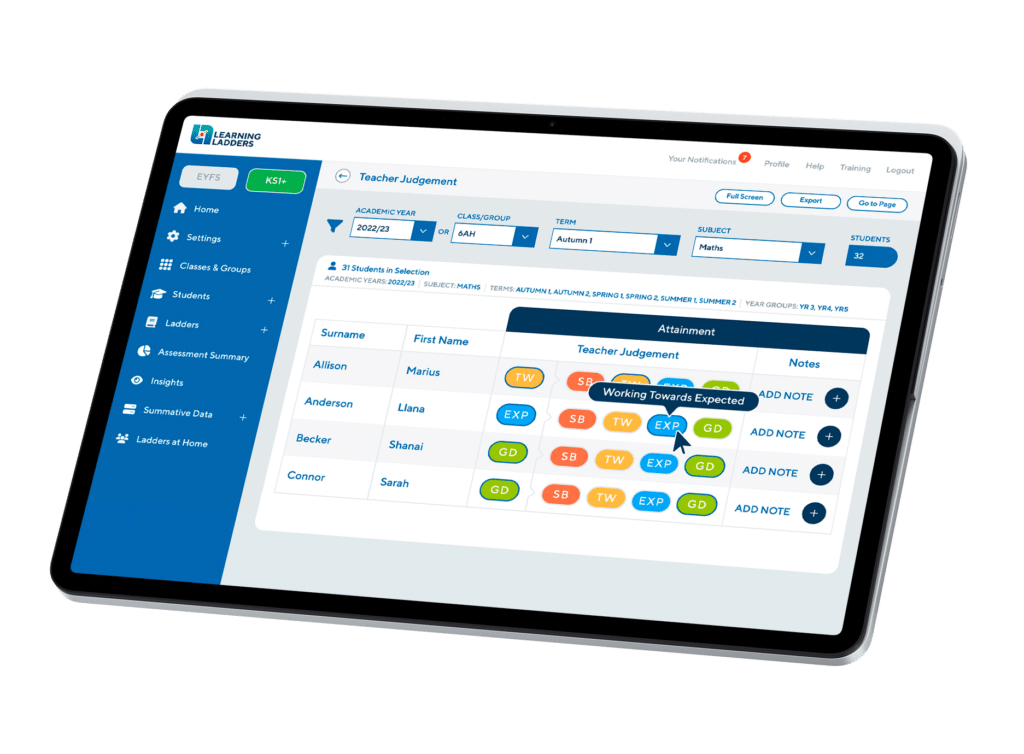
The impact of what we do
-
Better data use.
Research points to data-based decision-making contributing to increased student learning and achievement (Lai et al 2014, Poortman and Schildkamp 2016, Van Geel et al 2016). -
Better parental engagement.
“The effect of parental engagement over a student’s school career is equivalent to adding two or three years to that student’s education.” John Hattie, 2008 “What parents do with their children at home is much more significant than any other factor open to educational influence” Desforges and Abouchaar, 2003.
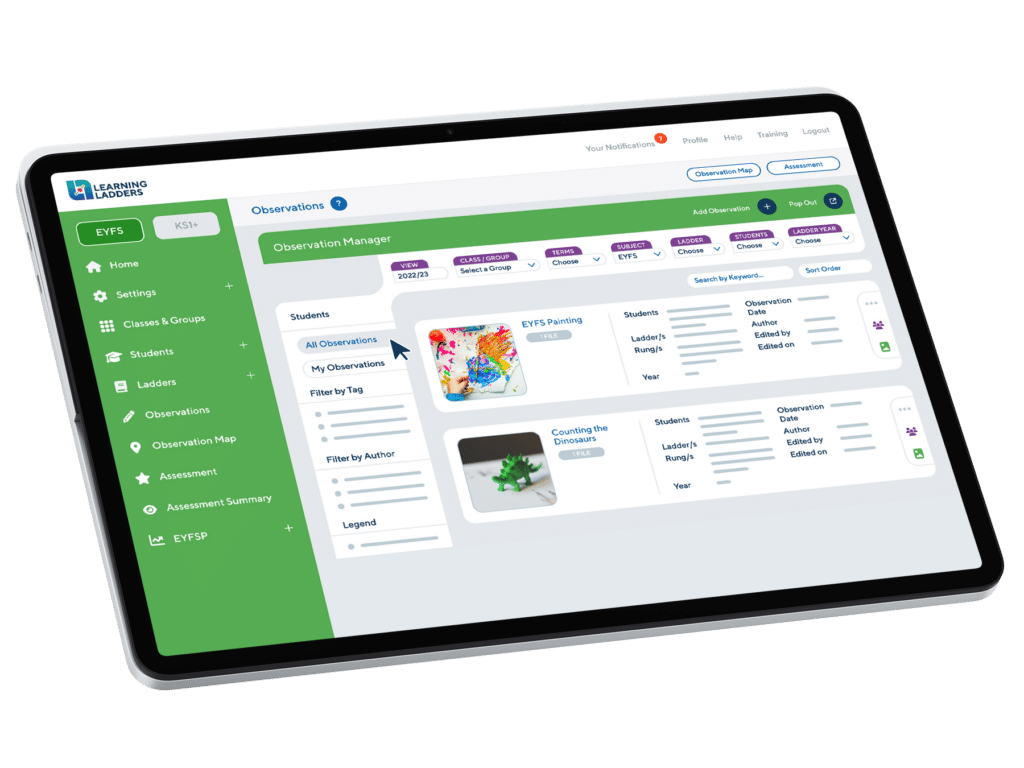
How we quantify our EdTech evidence
Some products can access the highest levels of evidence gathering (the Nesta Standards of Evidence are a helpful guide to evidence), but for others it’s not possible to isolate their impact free from any other factors.
Learning Ladders works across too many areas of school life (assessment design, data, reporting, parental engagement just to name a few) to be able to isolate its impact.
For that reason we’ve sought to prove the efficacy of our approach and our product in several different ways:
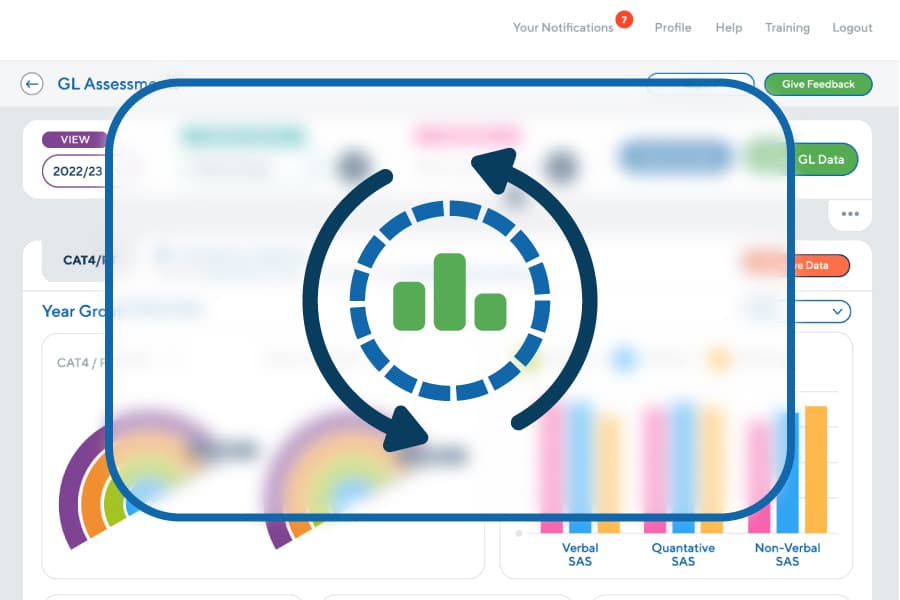
1. Statistical Analysis
We engaged a statistician to review public data for statutory KS2 (end of Primary) SATS tests in England, comparing the improvement schools who switched to Learning Ladders from another pupil progress tracking system saw over a period of time compared to those who did not over the same period.
Reading was selected because the starting point of the two groups was considered statistically the same.
Over the following year schools who had switched to Learning Ladders saw a 11% increase in their average SATS results compared to those who did not – very encouraging!
A few notes of caution:
This analysis proved a correlation between switching to Learning Ladders for pupil progress tracking and achieving better SATS results, but not a causation.
The sample size was respectable (83 Learning Ladders schools) and statistically robust, but other factors could have been at play in these schools. In the space we work it is not possible to isolate or maintain consistency of every other factor (in the way a double-blind trial would).
The data strongly suggests that what we do works.
2. Academic Analysis
We engaged Dr Campbell & Professor Kucirkova from WiKit to independently evaluate the evidence and scientific basis behind our Logic Model and Theory of Change (why we think what we do works).
Our theory of change is based upon the logic that the adoption of Learning Ladders will improve school leadership, instructional practices, teachers’ and childrens’ motivation and engagement, and children’s learning supported by informed and involved parents.
Dr J Campbell & Professor N Kucirkova’s evaluation concluded that the Learning Ladders Theory of Change is supported by the scientific literature.
The academic literature concludes that what we do works.
3. Customer Reviews
There are few more effective evaluations of a solution than by those who use it, and so we have for some time participated in independent customer review platforms. This is where customers can give honest public feedback about a product that they have experience with.
We are consistently a top-ranked product for both Pupil Progress Tracking, Data Management, and Parental Engagement.
Customers say what we do works.
4.Industry Reviews & Awards

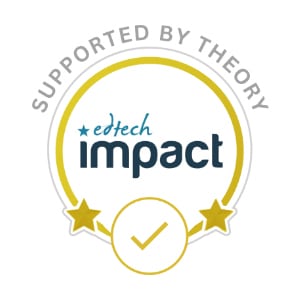
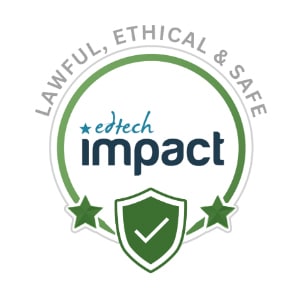
Industry awards are another mechanism for independent evaluation of our product, with judges typically being highly-experienced and experts in the field – no marketing slogans will fool these people!
The pinnacle and most competitive EdTech Awards are the BETT Awards, which we entered in 2020 and 2022, winning on both occasions for “Best Whole School Solution for Assessment, Planning and Progress Monitoring”
Industry experts say what we do works.
5.EdTech Evidence Group

Learning Ladders is a founding member of the EdTech Evidence Group, an industry body that unites the education community around the common goal of raising the standards of EdTech evidence.
EEG Objectives:
- Sustain high-quality evidence gathering in members’ own organisations.
- Help improve evidence gathering across the EdTech sector.
- Support schools to understand how they can assess EdTech solutions and platforms.
- Improve communication to schools about how to gather evidence and monitor the impact of EdTech.
We’re committed to raising the standards of evidence in EdTech.
